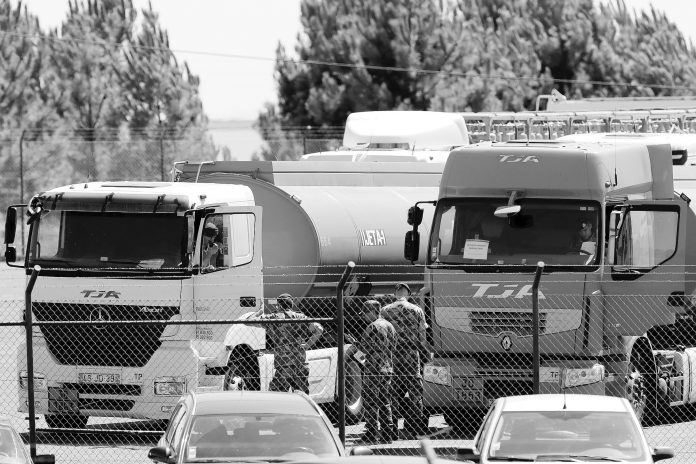
Portugal braced Wednesday for possible fuel shortages as a trade union representing striking tanker truck drivers said they would defy a government order that they provide minimum deliveries to gas stations — a move that could send them to prison.
The move stoked fears that gas stations could soon run dry and deepened political tension less than two months before a general election.
It was not immediately clear whether truckers would heed the call by the National Hazardous Materials Drivers’ Union, which represents some 750 of the country’s about 900 tanker drivers.
Portuguese media reported that no tanker trucks loaded up at a major northern depot, but truckers at a large southern depot were complying with the government order.
Portugal is already rationing gas, three days after the walkout began. The strike came during the peak vacation season and as the harvest of summer staples, such as tomatoes, is coming in.
Anticipating gas shortages, the center-left Socialist government demanded before the strike that truckers provide a minimum volume of supplies, including to emergency services and airports.
The government also insisted that truckers maintain 75% of normal gas deliveries for public transport systems and 50% to gas stations in order to keep the country running. Soldiers and police have also made gas deliveries.
Authorities concluded that the truckers were not fully complying with the stipulated minimum of deliveries, so on Monday the government enacted a rarely-used law which makes failure to carry out minimum services punishable by up to two years in prison.
After 11 truckers were served with a summons for alleged failure to comply with the order, union spokesman Pedro Pardal Henriques announced early Wednesday that no truckers would work.
“They won’t do anything,” he said at a picket line. “They’ll need a lot of buses to come and take all of us away.”
The truckers are demanding staggered annual rises over the next three years in their basic pay and benefits. They want their basic pay to increase from 630 euros ($705) a month to 900 euros ($1,007) by 2022.
Employers say they can’t afford the demands and that they won’t return to the negotiating table while the truckers are on strike. The truckers’ union says it won’t end the walkout until negotiations resume.q



















